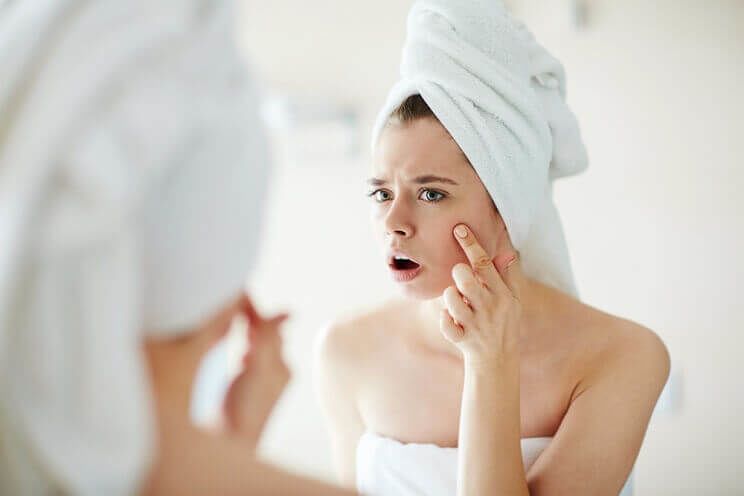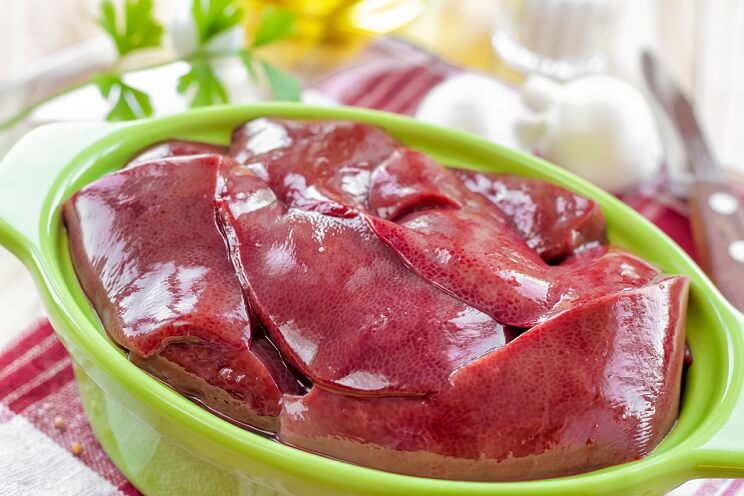one of us are immune to “bad skin days.” An uneven skin tone, splotchy bumps and pimples have plagued us all. And while white sugar, caffeine, dairy and chemical-laden makeup are the most common skin saboteurs, research suggests too much of a certain vitamin may also be causing your breakouts: vitamin B12 .
Now, when you consider the relationship between nutrition and the skin, nutrient deficiencies are typically what you’d think of first. We must get an adequate amount of essential nutrients, such as healthy fats, antioxidants, amino acids, vitamins and minerals, for bright, clear skin. In fact, B vitamin deficiency has been linked to rashes, an uneven complexion, and yes—acne.
So, how is it possible then, that a B12 supplement could cause acne—especially when B12 supplements or injections are commonly recommended for improving skin health?
Why B12 Supplements Can Cause Acne
First, let’s get something clear: B vitamins are essential for your skin. They help produce collagen, moisturize, prevent dryness, and help reduce the appearance of wrinkles . As a true “skin food,” B vitamins aren’t the enemy—they nourish, hydrate and protect your skin’s outermost layer .
However, you’ve probably heard the saying, “too much of a good thing is a bad thing,” and this applies to B vitamins, too. Meaning: if you aren’t truly deficient in B12, adding extra B12 to your diet could actually aggravate your skin and cause blemishes. Let’s take a look at why this can happen.
We all have a strain of acne-causing facial bacteria on our skin called Propionibacterium acnes, or P. acnes for short. Under normal circumstances, P. acnesdoes no harm—it simply hangs out on the skin and minds its own business. The only time p. acnes becomes a problem is when it’s triggered by certain factors, such as fluctuating hormones. When its activity is changed on the skin, it can cause an inflammatory response, leading to breakouts .
All right, all right: so what does B12 have to do with any of this?
According to a recent study published in Science Translational Medicine, B12 supplements have also been shown to alter P. acnes growth on the skin. And not only for those who are acne prone, but also for those who otherwise have clear skin.
Vitamin B12 supplements can alter bacteria growth on skin, causing breakouts.
The study continues to explain that the altered expression of p. acnes caused by B12 supplements encourages the growth of a pigment called porphyrins, which further contributes to the inflammation associated with acne .
Now, this study fails to mention the exact dosage of B12 administered to patients, and whether the B12 supplements were injections or capsules. But one of the speculations as to why B12 supplements may cause breakouts is due to the fact that the supplements on store shelves contain unusually high amounts of B12.
For example, the average female adult requires 2.4-2.8 mcg per day, but if you take a peek at the label of any given isolated B12 supplement, many contain upwards of 2,000 mcg per dose .
As mentioned above, an excess of B12 is what can change p. acnes activity on the skin and lead to breakouts—so these unusually high amounts don’t seem to work in our favor when we aren’t truly deficient in B12.
B12 supplements typically contain unusually high amounts of the vitamin.
Now, being a water-soluble vitamin, high amounts of B12 are considered “safe” to take in supplements because your body will excrete whatever you don’t need through your urine. But as you can see, these high supplement doses may be aggravating (skin-wise) for the average person who receives B12 from dietary sources, such as red meat, chicken, eggs and fish.
Another reason B12 supplements may trigger acne is because many versions found on store shelves are synthetic. Most B12 supplements are formulated with cyanocobalamin, which is a synthetic version of B12 made from cyanide and cobalt. When we take this version of Vitamin B12, our bodies must convert cyanocobalamin to a “usable” or “preferred” form of B12, which is methylcobalamin . During this conversion, our bodies are left with cyanide as a byproduct, which must be detoxified and eliminated by the liver.
If you already have acne-prone skin, the last thing you want to do is create more work for your liver. In fact, from a holistic perspective, the health of your skin is a reflection of the health of your internal organs (in particular, your digestive system and liver). But one thing to remember is your skin is also an organ of detoxification (it’s your largest one). Therefore, when your liver is overburdened with toxins to filter out of your system, toxins may also start coming out through your skin, which can clog your pores and lead to breakouts .
Do Food Sources of B12 Cause Acne?
Food sources of B12 aren’t as much of a concern for triggering breakouts.
Not only do food sources contain the natural form of B12, methylcobalamin, which the liver doesn’t have to detoxify—but they’re also much lower in B12 than the supplements on store shelves. For example, one of the richest sources of B12 is liver, which contains approximately 85.9 mcg per 100 gram serving . As you can see, this is a small fraction of the higher dose synthetic B12 supplements.
Beef liver is a much better source of Vitamin B12 than supplements.
Since animal products are the richest sources of B12, B12 supplements are more commonly recommended for those who follow a vegan or vegetarian diet, as opposed to a Paleo diet.
The Bottom Line
If you’re truly deficient or eat a diet low in animal products, Vitamin B12 supplements may not be a threat to your skin. It’s only when your body’s receiving an abundance of this vitamin that the bacteria on your skin can change, and trigger the inflammation related to breakouts.




